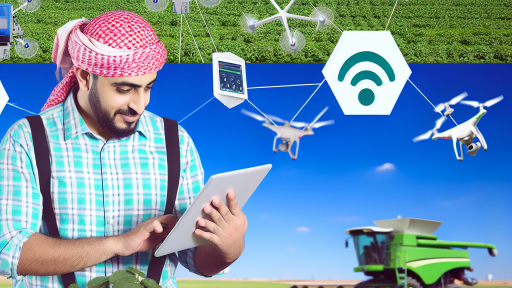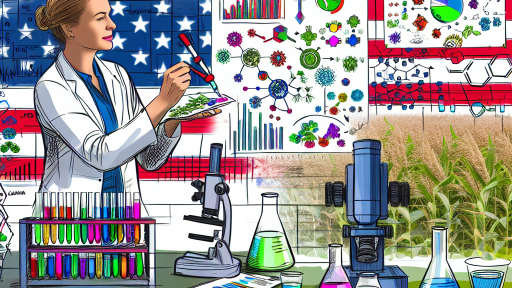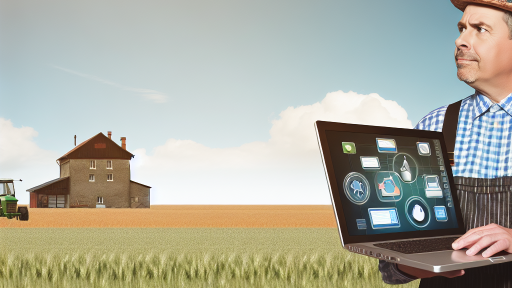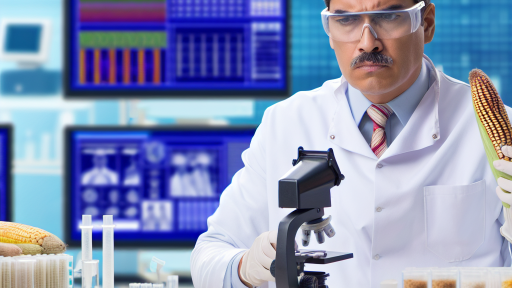Introduction to Blockchain Technology and Its Applicability in Agriculture
Blockchain technology revolutionizes how we track and verify transactions.
This decentralized ledger system provides transparency and security.
Consequently, it enhances trust among participants in agricultural supply chains.
Fundamentals of Blockchain Technology
Blockchain consists of a series of blocks containing data and transactions.
Each block links to the previous one, forming an unchangeable chain.
This structure makes it nearly impossible to alter past information.
Benefits of Blockchain in Agriculture
Blockchain improves traceability of agricultural products from farm to fork.
It allows consumers to verify the origin of their food.
This transparency leads to heightened food safety awareness.
Moreover, it enables farmers to access real-time data on market demand.
Real-World Applications of Blockchain
Several companies employ blockchain for better traceability in agriculture.
For instance, Gulf Marine Services uses it to track seafood supply chains.
Similarly, IBM collaborates with Walmart to ensure food safety through traceability.
Challenges and Considerations
Implementing blockchain technology is not without challenges.
For instance, it requires significant investment in infrastructure.
Transform Your Agribusiness
Unlock your farm's potential with expert advice tailored to your needs. Get actionable steps that drive real results.
Get StartedFurthermore, standardization remains a concern among various stakeholders.
Data privacy and security must also be prioritized to gain trust.
The Future of Blockchain in Agriculture
Looking ahead, blockchain has the potential to reshape agriculture.
Innovative solutions can emerge from improved transparency and efficiency.
Ultimately, this technology can support sustainable agricultural practices.
Understanding Traceability and Its Importance in Agricultural Supply Chains
Defining Traceability
Traceability refers to the ability to track the journey of agricultural products.
It encompasses every stage from production to consumption.
Key elements include recognition of origin and tracking of distribution.
Benefits of Traceability
Traceability enhances food safety significantly.
It allows swift responses during food recalls.
Moreover, consumers gain confidence in product authenticity.
It also encourages accountability among producers and suppliers.
Regulatory Compliance
Many countries impose strict regulations for agricultural traceability.
Compliance ensures that food products meet safety standards.
It also facilitates international trade by meeting market requirements.
Transparency in Supply Chains
Traceability fosters transparency within the supply chain.
Stakeholders engage more effectively with complete visibility.
Suppliers can address consumer concerns regarding sustainable practices.
Impact on Sustainability
Traceability contributes to sustainable agricultural practices.
It reduces waste by identifying inefficiencies in production.
Furthermore, it promotes responsible sourcing of materials.
How Blockchain Ensures Transparency Through Decentralized Ledger Systems
Understanding Blockchain Technology
Blockchain technology serves as a decentralized ledger system.
This innovative approach records transactions across many computers.
As a result, data becomes immutable and transparent.
Showcase Your Farming Business
Publish your professional farming services profile on our blog for a one-time fee of $200 and reach a dedicated audience of farmers and agribusiness owners.
Publish Your ProfileMoreover, it enhances trust among stakeholders in agriculture.
Decentralization and Its Importance
Decentralization eliminates the need for a central authority.
Thus, it reduces the risk of fraud and corruption.
Stakeholders can independently verify the authenticity of transactions.
This capability boosts confidence in the agricultural supply chain.
Transparency in Transactions
Blockchain fosters transparency by documenting every transaction.
Each transaction is time-stamped and recorded permanently.
Furthermore, all participants in the supply chain can access this data.
This accessibility allows for greater accountability among producers.
Real-time Tracking of Products
With blockchain, farmers can track products in real-time.
This tracking begins from farm to table.
Consequently, consumers can verify where their food originates.
Such clarity can lead to informed purchasing decisions.
Case Studies of Blockchain Implementation
Companies like IBM are pioneering blockchain applications in agriculture.
For instance, their Food Trust initiative promotes transparency.
Additionally, Walmart has implemented blockchain for tracking produce.
This initiative has reduced food wastage and enhanced food safety.
Future Potential of Blockchain in Agriculture
The future of blockchain in agriculture appears promising.
It can streamline operations and reduce costs significantly.
Moreover, further adoption could enhance sustainability efforts.
Blockchain will likely revolutionize the agricultural supply chain.
Uncover the Details: Controlled Environment Agriculture Trends Every Farmer Should Know
The Role of Smart Contracts in Automating Transactions and Ensuring Compliance
Understanding Smart Contracts
Smart contracts are self-executing contracts with terms directly written into code.
They run on blockchain networks, ensuring secure and transparent agreements.
Moreover, smart contracts automate processes, eliminating the need for intermediaries.
Benefits of Automation
Automated transactions increase efficiency in the agricultural supply chain.
By reducing manual intervention, smart contracts minimize human errors.
Additionally, automated compliance ensures parties adhere to regulations in real-time.
Real-World Applications
Agritech startups are leveraging smart contracts to track produce from farm to table.
For instance, GreenField Innovations uses smart contracts to manage payment processes.
Meanwhile, FreshChain Technologies enhances transparency by recording each phase of production.
Ensuring Compliance
Smart contracts allow for real-time monitoring of transactions and compliance.
Stakeholders receive instant notifications if any conditions are not met.
This transparency builds trust among participants in the supply chain.
Challenges to Consider
Despite their benefits, smart contracts face challenges in widespread adoption.
Technical barriers and knowledge gaps often hinder implementation.
Furthermore, regulatory uncertainties may complicate smart contract use in agriculture.
Uncover the Details: Top Sensor Technologies for Sustainable Agriculture
Case Studies: Successful Implementation of Blockchain in Agricultural Traceability
Introduction to Blockchain Applications
Blockchain technology is transforming agricultural supply chains.
It enhances traceability by recording every transaction securely.
Showcase Your Farming Business
Publish your professional farming services profile on our blog for a one-time fee of $200 and reach a dedicated audience of farmers and agribusiness owners.
Publish Your ProfileThis technology offers a transparent view of supply chain processes.
Case Study: IBM Food Trust
IBM Food Trust is a significant player in agricultural blockchain.
This initiative connects farmers, processors, and retailers.
It allows them to share data through a decentralized ledger.
This system increases transparency and reduces waste.
For example, Walmart uses IBM Food Trust to trace leafy greens.
They can quickly identify the source of contamination during recalls.
Case Study: Provenance
Provenance focuses on ethical sourcing practices.
The company uses blockchain to verify product origins.
They help consumers access verified data on supply chains.
One case demonstrates fish traceability from ocean to plate.
Using blockchain, they ensure sustainable fishing practices.
This approach builds trust among consumers and brands alike.
Case Study: AgriDigital
AgriDigital offers a blockchain solution for grain supply chains.
This platform handles contracts, payments, and inventory management.
Farmers have better control over their sales transactions.
They can receive immediate payment upon delivery through blockchain.
This efficiency reduces financial risks in the supply chain.
Impact on Stakeholders
Blockchain technology benefits various stakeholders in agriculture.
Farmers have more visibility and control over their products.
Retailers gain consumer trust through transparent sourcing.
Consumers enjoy access to information about product origins.
This technology fosters collaboration among stakeholders.
It encourages a more responsible and sustainable food system.
Delve into the Subject: Comprehensive Agri-Fintech Overview Of Digital Payment Solutions For Farmers
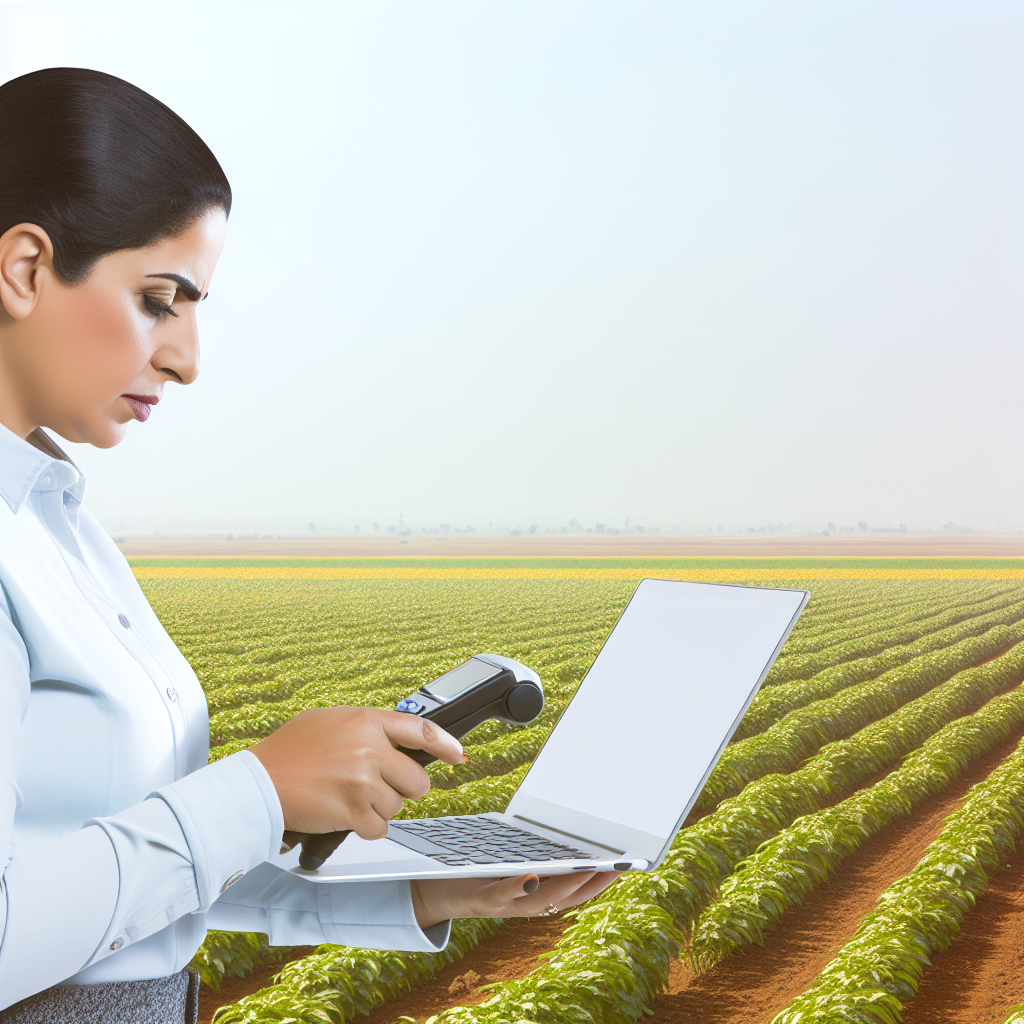
Challenges and Limitations of Adopting Blockchain in Agriculture
High Implementation Costs
Implementing blockchain technology in agriculture can incur significant costs.
Farmers may struggle to afford the necessary infrastructure upgrades.
Moreover, smaller farms may not have the capital for such investments.
In many cases, the return on investment may not be immediate.
Technical Complexity
Blockchain technology is complex and may confuse users.
Workers in agriculture may lack the technical expertise needed.
This skill gap can hinder effective adoption of blockchain solutions.
Additionally, training programs may not be widely accessible.
Interoperability Issues
Many agricultural systems operate with different technologies.
This creates challenges in integrating blockchain across platforms.
Incompatibility issues can arise between existing software and blockchain.
Collaboration among stakeholders is necessary to address this.
Data Privacy and Security Concerns
While blockchain offers transparency, it may also raise privacy concerns.
Farmers may be reluctant to share sensitive information.
Ensuring data security against cyber threats is crucial.
Showcase Your Farming Business
Publish your professional farming services profile on our blog for a one-time fee of $200 and reach a dedicated audience of farmers and agribusiness owners.
Publish Your ProfileStriking a balance between transparency and privacy remains a challenge.
Regulatory Hurdles
The agricultural sector is subject to various regulations.
Understanding and complying with these regulations can be daunting.
Additionally, government policies may lag behind technological advancements.
This disconnect can slow the adoption of blockchain in agriculture.
Gain More Insights: Revolutionizing Farming With Innovative Crop Disease Detection Technologies
Future Trends: How Blockchain Could Shape the Future of Food Safety and Sustainability
Improved Transparency in Food Supply Chains
Blockchain enhances transparency in agricultural supply chains.
This technology allows consumers to trace food origins easily.
Farmers can upload data about their practices to the blockchain.
Consumers gain insights into the food production process.
Moreover, this fosters trust between producers and consumers.
Enhanced Food Safety Protocols
Blockchain can revolutionize food safety measures significantly.
Quick identification of contamination sources becomes feasible.
Businesses will minimize risks associated with foodborne illnesses.
As a result, regulatory compliance improves dramatically.
Governments can access real-time data for better decision-making.
Increased Sustainability Efforts
Blockchain promotes sustainable agricultural practices effectively.
Farmers can track resource usage and waste production accurately.
Ultimately, they can adjust practices to minimize environmental impacts.
This transparency encourages consumers to support eco-friendly brands.
As a result, sustainability becomes a priority for more businesses.
Strengthened Supply Chain Resilience
Blockchain technology increases resilience in agricultural supply chains.
Decentralized systems reduce vulnerabilities to disruptions.
Businesses can adapt more quickly to changing market conditions.
Moreover, farmers can collaborate with various stakeholders efficiently.
This strengthens overall supply chain security and stability.
Adoption of Smart Contracts
Smart contracts within blockchain can streamline transactions.
These contracts execute automatically when conditions are met.
This reduces the need for intermediaries, cutting costs significantly.
Farmers can receive payments promptly upon delivery.
Consequently, cash flow improves, benefiting the entire supply chain.
Empowerment of Small Farmers
Blockchain empowers small farmers by providing access to global markets.
These farmers can showcase their products directly to consumers.
This opens up opportunities to compete with larger producers.
They can also secure better pricing for their goods.
This democratization of the market fosters innovation and growth.
The Potential Impact of Blockchain on Consumer Trust and Market Access
Building Consumer Trust
Blockchain technology enhances transparency throughout the agricultural supply chain.
This transparency fosters greater consumer trust in product authenticity.
Consumers can trace the origin of their food easily and quickly.
As a result, they feel more confident about what they buy.
Showcase Your Farming Business
Publish your professional farming services profile on our blog for a one-time fee of $200 and reach a dedicated audience of farmers and agribusiness owners.
Publish Your ProfileMoreover, blockchain provides verifiable proof of sustainable practices.
This proves crucial as consumers increasingly seek ethically sourced products.
Enhancing Market Access
Improved traceability via blockchain opens new market opportunities for farmers.
Access to global markets becomes easier with verified information on quality and safety.
Small-scale farmers, in particular, gain significant advantages.
They can demonstrate compliance with international standards more effectively.
This access can lead to better pricing and higher profit margins for producers.
Addressing Food Safety Concerns
Blockchain technology can significantly reduce food safety concerns.
In the event of contamination, tracing affected products is faster.
This enables quick responses to protect public health.
Consequently, trust in food safety measures strengthens among consumers.
Creating Competitive Advantage
Farms implementing blockchain can differentiate themselves in the marketplace.
Consumers increasingly value transparency and traceability.
Consequently, businesses with blockchain capabilities stand out from competitors.
Additionally, these businesses may attract partnerships with retailers focused on quality.
Future of Blockchain in Agriculture
In summary, blockchain has the potential to reshape consumer trust.
It also enhances farm access to domestic and international markets.
As demand for transparency grows, blockchain solutions will become vital.
Ultimately, this technology could lead to a more resilient agricultural supply chain.
Additional Resources
Blockchain technology for agricultural supply chains during the …
Blockchain Technology and Agriculture

